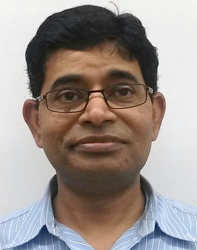Next General Meeting: By Richard Corzo
But even home users have been exposed to cloud computing. If you use Google Docs, or a Chromebook, where your files and applications are on the web, or a cloud storage service such as Google Drive, Microsoft OneDrive (formerly SkyDrive), Dropbox, Box, or iCloud, you are doing cloud computing. The cloud storage services are not just remote drives for storing files, but are tied in with other services. Microsoft's OneDrive is now tightly integrated with Office 365, so you can access your Office documents from either locally installed copies of Microsoft Office applications, or web browser versions of the Office applications, or Office apps on your mobile phone or tablet. Google Docs allows you to create and edit documents stored on your Google Drive. iCloud is different in that you don't see the file system in which your documents or music are stored. You can only access the data from specific applications, such as Pages for your word processing documents or iTunes for your iTunes in the Cloud music. Even watching Netflix is an example of cloud computing. Underlying these are cloud computing services that most of us don't deal with directly. Some cloud computing platforms are Amazon Web Services, Google Cloud Platform, offerings from IBM, Oracle Cloud, and Microsoft Azure. There is even an open source platform OpenStack. It's here that you'll start hearing terms such as Software as a Service (SaaS) and Platform as a Service (Paas). Infoworld has a good overview for IT professionals, "What cloud computing really means." Our speaker, Anand Tirumani, will lay the ground work in his presentation before going into some depth with one of these platforms, Amazon S3, "storage for the Internet." Some web professionals use this to back up their websites. Anand will explain and demo the service as a real time example so that you or your company can decide if it's a good platform for your requirements. Anand is an IBM Certified Solution Advisor in Cloud Computing Architecture V3. He recently completed training in Architecting on AWS (Amazon Web Services). He worked at IBM for 21 years in different roles as an IT Architect, Team Lead for the Enterprise Automations DBA team and Database Monitoring Support team, and Senior IT Specialist. His B.S. degree is in Electronics and Communications Engineering and he has a master's degree in Computer & Information Science from the University of New Haven.
--- DACS meetings are usually held at the Danbury Hospital auditorium. (Click here for directions and parking information.) Doors open at 6:30 p.m. for registration and casual networking. The meeting starts at 7:00 p.m. with a question and answer period (Ask DACS), followed by announcements and a short break. The featured evening presentation begins at 8:00. The meeting is scheduled to adjourn at 9:30 p.m. DACS General Meetings are free and open to the public. Members and prior attendees are encouraged to extend invitations to anyone interested in this topic. Danbury Area Computer Society (DACS) is a registered nonprofit and has been serving the region since 1990.
|
 Click Here |
 |
 |
DacsGear! |
 It's time to get behind the scenes in the computing world with our next topic,
It's time to get behind the scenes in the computing world with our next topic,